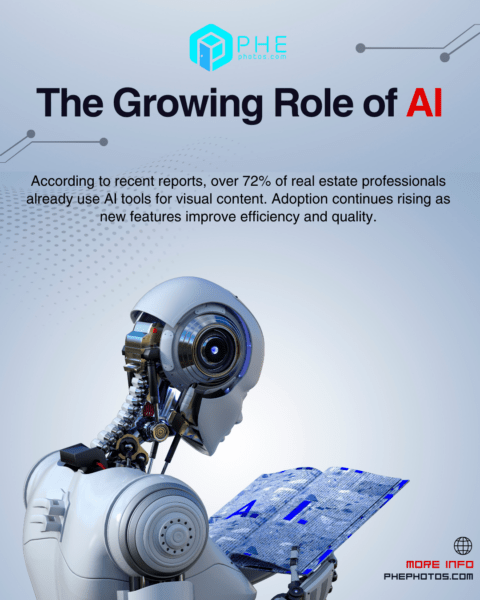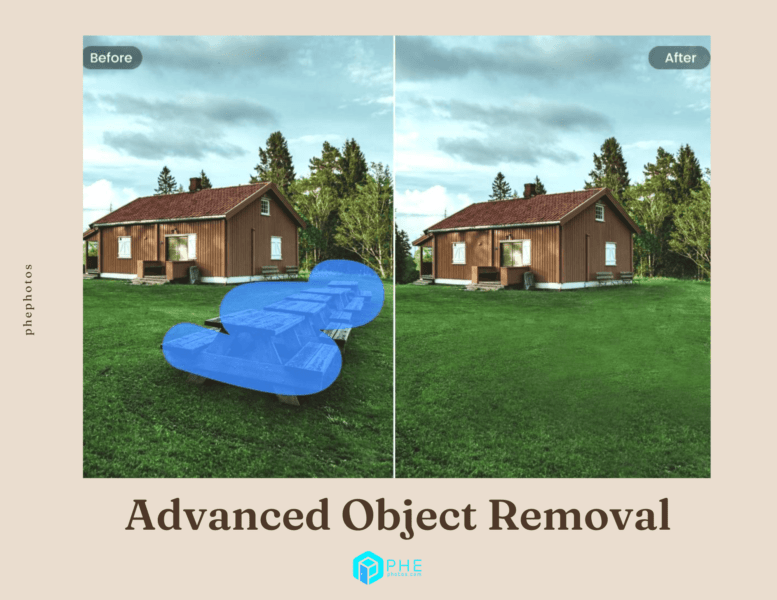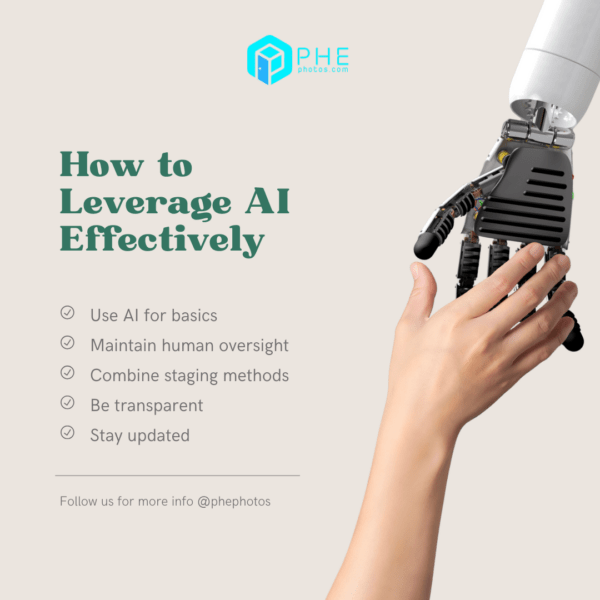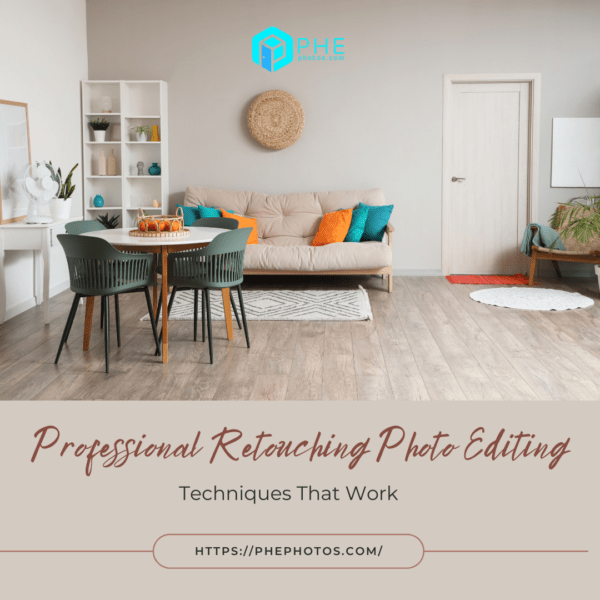AI in Real Estate Photo Editing: A 2025 Revolution
AI in real estate photo editing is transforming property marketing. High-quality visuals attract buyers, boost engagement, and accelerate sales. In 2025, this technology reshapes the entire process.
The Growing Role of AI
AI is not just a buzzword anymore. It is embedded in photo editing software used across the real estate industry. Agents, photographers, and marketing teams now rely on AI-powered tools to enhance listing photos.
According to recent reports, over 72% of real estate professionals already use AI tools for visual content. Adoption continues rising as new features improve efficiency and quality.

Speed Meets Quality
In traditional workflows, editing required hours of manual work. Lighting adjustments, sky replacement, or clutter removal often consumed time. Now, AI completes these tasks in seconds.
AI-driven editors automatically balance exposure, sharpen details, and fix perspective issues. Sky replacements look natural. Window views are enhanced without effort. The process becomes faster while maintaining professional quality.
This speed allows agents to publish listings sooner. Homes reach the market faster, which often leads to quicker offers.
Consistency Across Portfolios
AI excels at consistency. Manual editing can vary depending on skill or mood. However, AI applies uniform standards across hundreds of images.
Consistency matters for branding. Brokerages want their listings to follow a polished, recognizable style. AI ensures every photo meets the same standard. This uniformity builds trust with potential buyers browsing multiple properties.
Advanced Object Removal
One of the most impressive AI features is object removal. Furniture clutter, cables, or even unwanted cars outside homes can be erased seamlessly.
Earlier, such edits required advanced Photoshop skills. Now, AI models trained on millions of photos handle the task automatically. They predict background textures and reconstruct scenes with minimal error.
This creates clean, appealing visuals that highlight property features instead of distractions.

Virtual Staging and AI
Staging boosts property appeal but costs time and money. AI now offers virtual staging at scale. Empty rooms transform into stylish living spaces with a few clicks.
AI staging tools suggest furniture layouts based on room type and dimensions. Styles can be customized—from modern minimalism to rustic charm. Buyers can easily visualize potential lifestyles inside the home.
Reports in 2025 show virtual staging with AI increases buyer engagement by up to 60%. For agents, it saves thousands in physical staging costs.
Integration With 360 Tours
Another trend is the integration of AI editing with 360-degree virtual tours. Buyers expect immersive experiences. AI ensures panoramic images are sharp, balanced, and consistent.
AI even fills stitching gaps in 360 photos. It corrects distortions that often occur when creating virtual tours. This ensures smoother navigation for potential buyers exploring properties online.
Cost Benefits
AI makes editing affordable. Agencies no longer need to outsource every project. Instead, they can process bulk images in-house using AI platforms.
Although professionals still add value for complex edits, AI reduces overall costs. For smaller agencies and freelance photographers, this accessibility is game-changing.
Risks and Challenges
Despite benefits, AI introduces challenges. Over-edited photos may mislead buyers, creating trust issues. Regulations in some regions now require disclosure if images are digitally altered.
AI is also not perfect. Complex reflections, unusual lighting, or intricate textures sometimes confuse algorithms. Human editors remain essential for final quality checks.
Another concern is job displacement. Automated tools reduce demand for basic editing tasks. Yet, many professionals pivot to more creative roles—custom editing, branding, and client experience.
Sustainability in AI Editing
AI also affects sustainability. Automated editing reduces travel and staging needs. Fewer physical resources are consumed. However, AI computing still requires energy. The industry is exploring greener AI solutions, including low-energy inference and renewable-powered servers.
Future Outlook
AI in real estate photo editing will only grow. Upcoming models will offer predictive editing. Systems will learn agent preferences and automatically apply branding styles.
We can also expect integration with AI-driven marketing platforms. Edited images will directly feed into listing ads, social media, and property websites. AI will not just edit but also optimize placement for maximum visibility.
Another frontier is personalization. Buyers might soon adjust listing photos dynamically—changing paint colors, furniture layouts, or landscaping virtually. AI will enable customized property exploration for every potential buyer.
How to Leverage AI Effectively
For professionals, the key is balance. AI should accelerate workflows, not replace human creativity. Consider these strategies:
- Use AI for basics: Let AI handle exposure, sky, and perspective.
- Maintain human oversight: Always review results before publishing.
- Combine staging methods: Mix AI staging with occasional physical setups for authenticity.
- Be transparent: Disclose digital enhancements where regulations apply.
- Stay updated: New AI tools release constantly. Keep experimenting.

Conclusion
AI real estate photo editing has revolutionized in 2025. It saves time, cuts costs, and boosts buyer engagement. Features like object removal, virtual staging, and consistent editing have become industry standards.
Yet challenges remain. Overuse can harm trust. Algorithms still need human oversight. Professionals must learn to guide AI instead of fearing it.
The future is clear: AI will continue transforming real estate visuals. Those who adapt quickly will capture attention, build stronger brands, and close deals faster.
Real estate has always relied on vision. With AI, that vision is sharper, faster, and more powerful than ever before.
Read more:
AI for Photo Editing: Tools, Trends, Benefits
Precision Exterior Editing: A 2025 Real Estate Photo Strategy
Best Free Virtual Staging Apps for 2025











